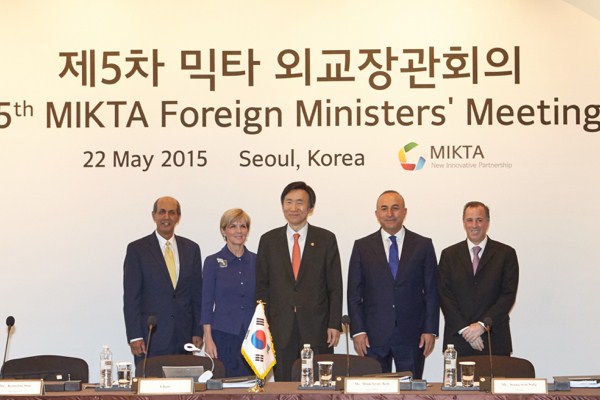Last month, the foreign ministers of Mexico, Indonesia, South Korea, Turkey and Australia met in Seoul for the fifth round of so-called MIKTA foreign ministerial meeting. In an email interview, Günther Maihold, the Guillermo and Alejandro de Humboldt chair at the College of Mexico, discussed the MIKTA grouping.
WPR: What was the impetus behind the creation of the MIKTA grouping, and what are the main areas of cooperation between the MIKTA countries?
Günther Maihold: When the foreign ministers of Mexico, Indonesia, South Korea, Turkey and Australia met on the sidelines of the U.N. General Assembly on Sept. 25, 2013 and announced a new international grouping called MIKTA, corresponding to the initials of their countries, nobody—maybe not even the founding members—was clear about the final objective of these emerging G20 economies joining forces. Most surprising was the inclusion of Australia, a country with the 12th-largest GDP worldwide and the fifth-largest GDP per capita, which gave this grouping of intermediate emerging powers a special weight. But this new association, which identifies itself as an informal grouping and a consultative platform, has similarities with the G20 and with its “big brother” BRICS, the grouping of Brazil, Russia, India, China and South Africa.

